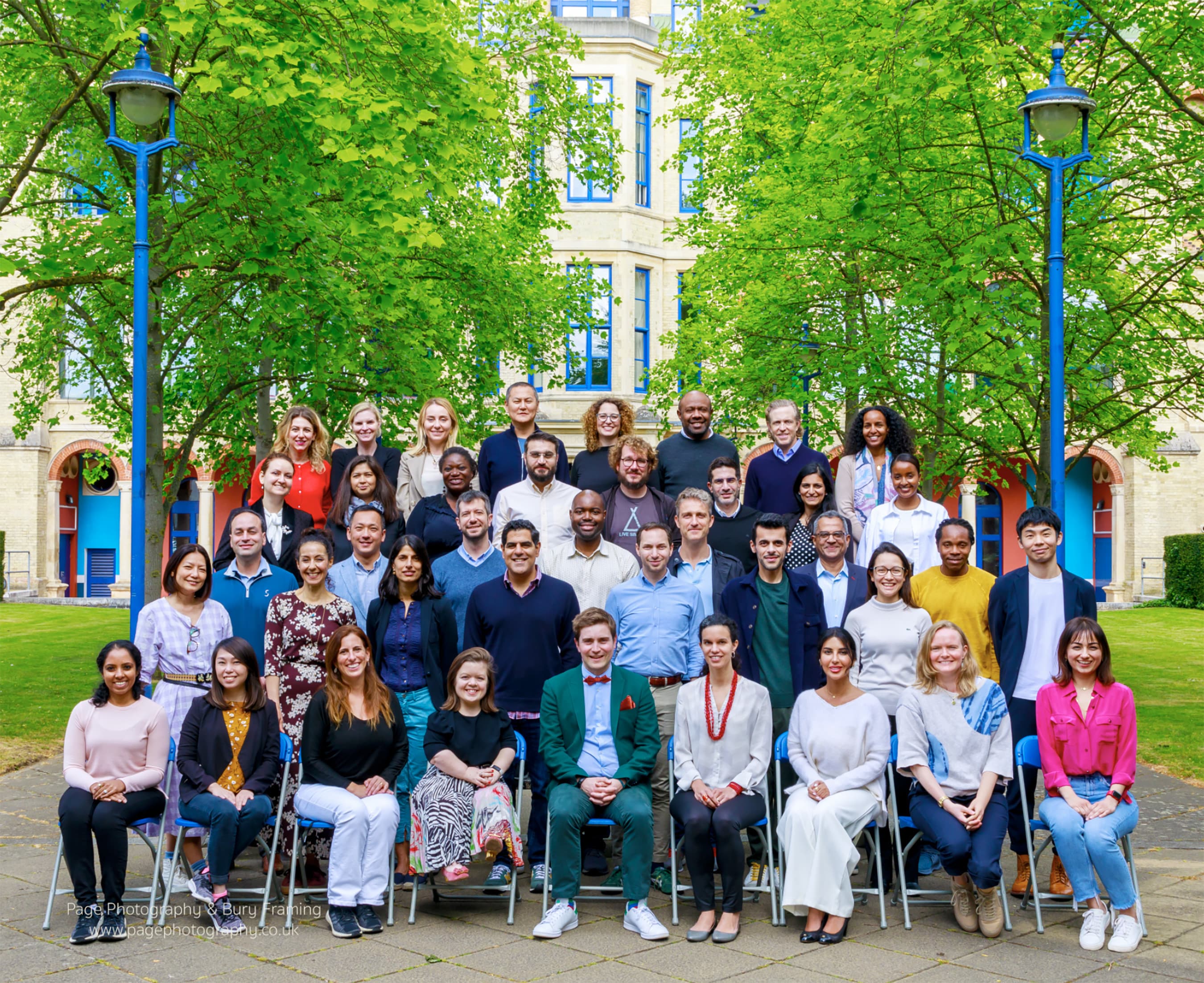4 experts on how leaders can best respond to a changing global landscape

Young Global Leaders at the University of Cambridge Judge Business School. Image: Page Photography.
Kulé Galma
Lead, Event Editorial, Programming and Communications, YGL Foundation, World Economic ForumListen to the article
- The world is experiencing a time of unprecedented change and disruption.
- We have also observed shifts in our geopolitical realities and seen growing urgency in response to climate change.
- Young Global Leaders share their thoughts on how to navigate these uncertain times.
The COVID-19 pandemic shook our communities, devasted our economies and even altered the ways that we work and relate to one another. We have also observed shifts in our geopolitical realities and seen growing urgency in response to climate change. Now, more than ever, leaders need the skills and tools to navigate uncertain circumstances and pivot their strategies.
In collaboration with the University of Cambridge Judge Business School, 40 Young Global Leaders took a one-week executive education module. Drawing from their personal leadership journeys, these young leaders looked at how they could manage teams in extreme contexts, deal with unpredictability and even unleash their creativity to lead more responsibly.
As leaders continue to navigate uncertainty, we asked four of our Young Global Leaders to share their thoughts on how leaders must lead differently to respond to our changing global landscape.
'Rebuild societal trust and restore system stability'
Arvan Chan, Senior Vice-President and Chief Operating Officer, International, Centene Corporation
Workers are burning out, inflation is widening income inequality, and infectious and chronic illnesses are disproportionately affecting underserved communities. We, as future leaders, have an opportunity and a responsibility to define and execute on new strategies that can adapt to non-linear uncertainties, rebuild societal trust, and restore system stability.
As we transition into a future that is comprised of platforms, not products, industry boundaries will disappear. Therefore, it is critically important that our new business models are inclusive, our “ageless” workforce is diverse, and our big data and AI have ethical guardrails to ensure a more inclusive future for all.
'Build the resilience that teams need to thrive'
Matthew Guilford, Co-Founder and Chief Executive Officer, Common Health
Leaders need to move the topic of uncertainty away from the risk committee and into the forefront of organizational strategy and implementation. At a time when people are eager for a vision of a post-pandemic world, leaders have a responsibility to provide a point of view on what they believe the future may hold.
But they must also take steps, every day, to build the resilience that their teams need to thrive if the environment evolves in a “non-linear” way. Empathy – with customers, employees, partners, and even competitors – is a critical enabler for this type of creative thinking.
'Reskill, upskill and motivate teams to deliver holistic impact'
Raju Narisetti, Director, Global Publishing, McKinsey & Company
As volatility, uncertainty, complexity, and ambiguity (VCUA) soar – from the ongoing fallout of pandemic, the war in Ukraine and global economic headwinds – resilient leaders and organizations need to shift from an “or” mindset to an “and” mindset. This means doubling down on accelerating sustainable and inclusive growth to create stakeholders and ecosystem impact, creating value for customers, suppliers, and the environment.
It is also about embracing technology to drive agile digital transformations within our organizations while continuing to build and reinforce our existing human capital and our future workforce, by reskilling, upskilling and motivating our teams to deliver holistic impact.
What is a YGL?
'Communicate, leverage creative ideas and collaborate'
Claudia Vergueiro Massei, Head, Executive Office and Transformation, Motion Control, Siemens AG
With so many crises going on in parallel all over the globe, it is ever more imperative that leaders adopt new leadership tools and take action to take today’s VUCA world to a super VUCA one (vibrant, unreal, caring, astounding). Here are three ideas for change that can make a difference going forward:
- Pay more attention to how we communicate with others: deliver your message taking in consideration the benefits of ensuring psychological safety of individuals, highlighting trust in the abilities of others and encouraging harmonious performance within the team. It is also important to articulate how each step along the way helps the team get closer to its final goal (and, in case it does not, avoid the step altogether).
- Leverage creative ideas: in a world of increasing demand and ever more scarce resources, investing in frugal innovation (doing more with less) is paramount. Creativity is key to find solutions to maximize utilization/minimize costs, such as circular economy and shared assets. It is important to demystify that “innovation must lead to unique ideas” – in most cases, innovation is incremental or adaptative.
- Collaborate within ecosystems: no player can tackle alone the complex issues of our world, so partnerships are an answer to customize solutions or to respond faster, saving time. The main challenge to build ecosystems, however, is to bring stakeholders together. This can be done by offering them reasonable, attractive value – allowing them to capture more value than they create, for instance.
Related topics:
More on LeadershipSee all
Sebastian Buckup and Maximilian Martin
November 13, 2025






